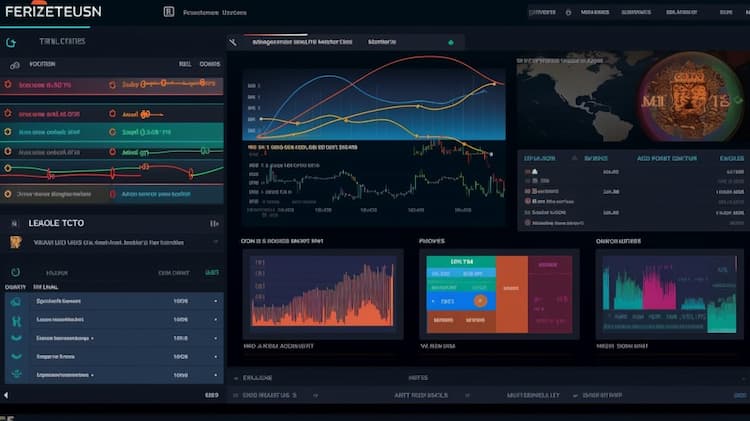
Alternatives to EZU for investing in Eurozone
Investing in the Eurozone offers attractive opportunities for diversifying portfolios and gaining exposure to European markets. While EZU is a popular exchange-traded fund (ETF) focusing on the Eurozone, it's worth exploring alternative options to find the best fit for individual investment strategies and goals. In this article, we will delve into some alternative ETFs for investing in the Eurozone, highlighting their key features and considerations.
Vanguard FTSE Europe ETF (VGK)
One notable alternative to EZU is VGK, the Vanguard FTSE Europe ETF. VGK aims to provide broad exposure to European stocks, encompassing companies from various European countries, including those within the Eurozone. The ETF tracks the performance of the FTSE Developed Europe All Cap Index, which includes large, mid, and small-cap stocks. VGK's diversified portfolio offers investors the opportunity to participate in the growth potential of European companies across sectors.
iShares MSCI Eurozone ETF (EZU)
Another alternative to consider is EZU itself. EZU focuses specifically on companies within the Eurozone, tracking the performance of the MSCI EMU Index. This index represents large and mid-cap stocks from countries using the euro as their currency. By investing in EZU, investors gain exposure to key Eurozone economies, such as Germany, France, and Spain, among others.
 EZU overlap Are there any alternatives to EZU for investing in the Eurozone?
EZU overlap Are there any alternatives to EZU for investing in the Eurozone?
SPDR EURO STOXX 50 ETF (FEZ)
For investors seeking exposure to blue-chip companies within the Eurozone, FEZ, the SPDR EURO STOXX 50 ETF, is a viable alternative. FEZ aims to track the performance of the EURO STOXX 50 Index, which comprises 50 of the largest and most liquid stocks in the Eurozone. By investing in FEZ, investors can gain exposure to leading companies across various sectors, providing a focused approach to investing in the Eurozone.
Considerations
It's important to note that each alternative ETF has its own unique characteristics, such as expense ratios, tracking indexes, and investment strategies. Before making any investment decisions, investors should thoroughly research each ETF, review their prospectuses, and consider factors like expense ratios, liquidity, and historical performance. Additionally, investors should evaluate their own risk tolerance, investment objectives, and time horizon to ensure the chosen alternative aligns with their specific requirements.
In conclusion, while EZU is a popular choice for investing in the Eurozone, there are alternative ETFs available that provide exposure to this region. ETFs like VGK, EZU, and FEZ offer investors different approaches to investing in the Eurozone, allowing for diversification and participation in the growth potential of European economies. As always, it's crucial to conduct thorough research, consult with financial professionals if needed, and make informed investment decisions based on individual circumstances and objectives.
Disclaimer: This article does not provide any investment advisory services.
Source 1: EZU issuer website Source 2: Reuters article about EZU
EZU quote and analysis
Discover the top holdings, correlations, and overlaps of ETFs using our visualization tool.
Our app allows you to build and track your portfolio.
To learn more about the EZU iShares MSCI Eurozone ETF, access our dedicated page now.
FAQ
What does EZU mean?
EZU is the ticker symbol for the iShares MSCI Eurozone ETF. It represents an exchange-traded fund that aims to track the performance of the MSCI EMU Index, providing investors with exposure to equities from the Eurozone countries.
Is EZU suitable for long-term investment?
The suitability of EZU for long-term investment depends on individual financial goals, risk tolerance, and market conditions. It is advisable to conduct thorough research, analyze the potential risks and rewards, and consider consulting with a financial advisor before making any long-term investment decisions.
Are there any alternatives to EZU for investing in the Eurozone?
Yes, there are alternative ETFs and investment options available for investing in the Eurozone. Some examples include other Eurozone-focused ETFs or mutual funds that provide exposure to European equities. It is recommended to compare the features, costs, and performance of different investment options and consider individual investment goals before making a decision.
What are the risks associated with investing in EZU?
Risks associated with investing in EZU can include general market risks, political and economic uncertainties within the Eurozone, currency exchange rate fluctuations, volatility in European stock markets, and risks specific to individual countries within the Eurozone. It is important to consider these risks and conduct thorough research before making investment decisions.
What is EZU?
EZU is an exchange-traded fund (ETF) that represents the iShares MSCI Eurozone ETF. It holds a portfolio of stocks from companies listed in the Eurozone countries, providing investors with exposure to the equity markets of the Eurozone.



